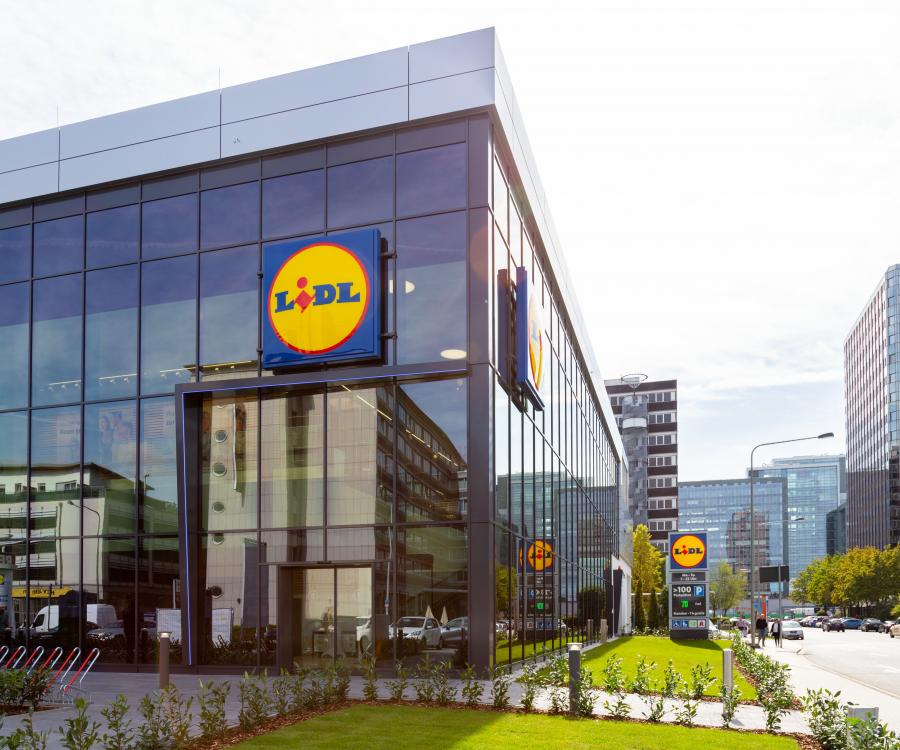Energy-efficient retail buildings are not only great for the environment, but also for business. This is why the German Energy Agency (Deutsche Energie-Agentur), abbreviated dena, launched an exemplary project at the beginning of this year. The project aims to boost the willingness to carry out energy-related modernizations in Germany. Andreas Tiemann talks about the economic and ecological renovation project.

Mr. Tiemann, what is the current level of modernization of retail buildings in Germany?
Currently, energy-related building modernization for non-residential buildings doesn’t get enough attention. What’s more, unlike residential buildings, there is less available data in this case, resulting in an inadequate knowledge of the energy situation.
The dena pilot project titled “Energieeffizient Handeln – Energetische Modernisierung von Gebäuden des Einzelhandels“ (English: Energy-Efficient Actions- Energy-Related Modernization of Retail Buildings) wants to change that. Among other things, it is meant to improve the level of information and aims to uncover retail renovation projects that are suitable for emulation and thus contribute to increasing the extent of renovation in retail. This year’s EuroShop featured a lecture on the pilot project and retailers were very interested in possible modernization measures.
What are the objectives of building modernization and what are the specific changes that are being made?
The goal is to reduce energy consumption by 30 to 40 percent. The emphasis of the pilot project is on planning a renovation project. Participants receive individual support from us in creating a concept. This includes energy consulting, the development of the renovation concept, the actual implementation of the plan and a final report.
Who is your target audience for this?
The pilot project started in early 2017 with the first 19 participants and will end in December 2018. The first meeting of participants and partners took place at the beginning of April and focused on networking and exchange of experience. There will be additional meetings in the future.
Meanwhile, other retail companies, tenants, and landlords of retail buildings are still able to send us applications until April 28, 2017. The target audience is both larger retail chains and smaller chains throughout Germany. We want to bring tenants and landlords on board because a large percentage of retail spaces are being leased. To be able to successfully implement energy-related building renovations, real estate owners and retailers increasingly need to be brought to the same table. Our essential concern is for both groups to achieve energy efficiency and economic success.
You emphasize and promote close collaboration between retailers and commercial landlords.
That’s correct. We created the project requirements in a way to where the areas of responsibilities of the groups are overlapping, subsequently forcing them to communicate with each other. In order to be able to participate in the project, the retailer has to complete at least one structural renovation and one measure that affects building technology. To do this, retailer and owner have to jointly choose these measures. In terms of structural design, this might pertain to the building envelope, windows or door systems for example. The optional building technology measures generally include retail cooling systems, lighting or ventilation systems as well as heating systems.

What makes a participation in the renovation project so attractive for retailers?
One special incentive to participate is the chance to compare notes with each other and our project partners during expert workshops, which we organize. The pilot project is funded by the German Federal Ministry for Economic Affairs and Energy (BMWi). Our other project partners include the German Retail Federation (Handelsverband Deutschland), the EHI Retail Institute, the German Property Federation (Zentraler Immobilien Ausschuss) and the Federal Association of Free Real Estate and Housing Companies ( Bundesverband Freier Immobilien- und Wohnungsunternehmen) as well as Hottgenroth Software, krumedia, Hörburger Control Systems and MultiCross Wärmerückgewinnungstechnik. One exciting aspect for participants, for example, is the chance to directly communicate with the BMWi and discuss the general requirements.
Anything else?
In addition, a neutral portrayal of the participants in the public eye can attract a lot of attention. This can be achieved in trade publications and national or regional newspapers. Last but not least, it also affords the opportunity to serve as a role model in the area of energy efficiency and stir up interest within the industry sector but also capture customer attention.
Apart from the “big players“, are small-scale retailers also able to participate and why should they not shy away from this despite a tighter budget?
Smaller retailers can and are already participating. Aside from larger chains and specialty retailers from the fashion arena, even a country store has joined in. Usually, the efficiency measures have not yet progressed very far. That is why the potential savings are great – especially during the first steps. Small-scale retailers often also own the buildings, which speeds up the decision-making process and can save time and money. What’s more, funding options have not been fully exhausted yet when it comes to this group. For example, the BMWi covers up to 80 percent of energy consulting costs for small and medium-sized businesses. Companies can apply for these funds at the Federal Office for Economic Affairs and Export Control (BAFA). We provide support and information in this case. In addition, we award a bonus of € 5,000 to all participants upon successful completion of the pilot project.
What are the next steps after project completion?
An implementation of the modernization measures within the pilot project’s timeframe is not mandatory but something we would like to see at this end. We would like to assist some companies during follow-up measures and continue supporting them in process optimization. This could be done in the form of subsequent energy monitoring.
Further project information can be found here.










